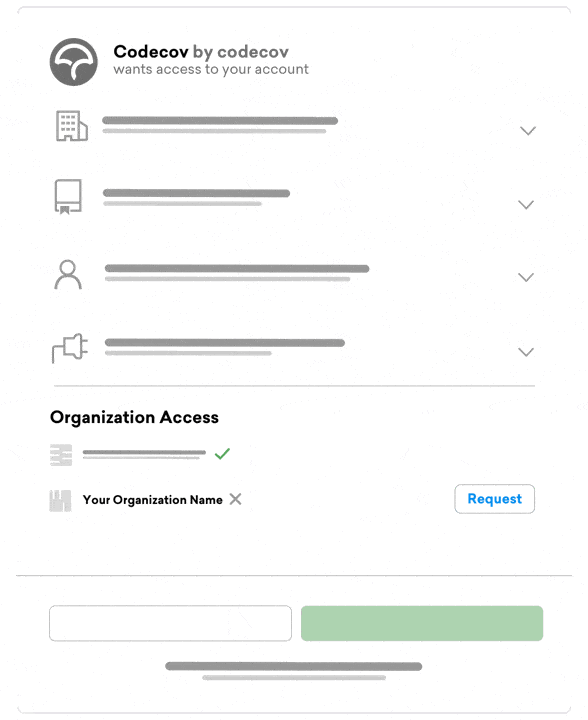
Update: As of May 1, 2022, Codecov has fully adopted a 4-day workweek.
After months of research, and a lot of careful consideration, Codecov has decided to pilot a 4-day workweek. What does that mean? It means for at least 6 months, instead of working 40 hours/week spread across 5 working days, we’ll work 32 hours spread across 4 days. There were many reasons that we decided to pilot a 4-day workweek, but below are some of the most salient. Want to work with us? Check out our careers page here.
Why did we do this?
Retaining Talent and Combating Burnout
When we asked one of our incredibly talented developers why he was leaving for a new role, he cited burnout as one of the main reasons. For our leadership team, this was saddening and concerning. Our Q4 engagement survey revealed that this sentiment was not isolated to one developer.
The number of team members citing adequate “time and energy for friends, family, and leisure activity after work” had declined from 56% in Q1 to 32% in Q4.
After a year of rapid team growth and ambitious projects riding on an undercurrent of pandemic stress, it was clear we needed to address burnout.
Attracting Talent
Our company is fully remote. In the past, many of our hires found the prospect of “remote work” very appealing and it gave us an edge in hiring. However, as the pandemic has dragged on, more companies adopted this model. It’s no longer a competitive advantage in the recruiting process. We took a step back and asked ourselves, “How can we be inclusive to those who can’t or prefer not to work 40 hours a week, while still being a leading global company? What is that thing that will help us regain that edge while also benefiting our employees?” When pairing this with the aforementioned topic of “burnout”, the answer came naturally.
First Principles
Our team relies on first principles thinking to answer many questions on a daily basis. In this situation we found ourselves asking, “Why do we have a 5-day workweek to begin with? Who decided it should be 5 days?” Consider the restfulness, focus, and creativity we bring back after a longer, 3-day weekend. Why can’t every weekend be like that? Our theory is that a 4-day workweek doesn’t harm overall output and productivity. In fact, we believe a 4-day workweek may increase effectiveness overall, not just per hour.
Our Research
After much research, we found the answers to our pointed questions. Below are some of the questions we asked and the answers we found…
- Why do we have the 5-day workweek anyway?
- What are the causes driving the Great Resignation?
- What is employee tenure like in the tech industry?
- Has anyone else adopted a 4-day workweek?
- If there is adoption, what’s the momentum?
After discovering that we weren’t crazy for thinking about this fundamental change in our working model, we considered how this move could help us with:
- Recruiting
- Cultural leadership
- Employee satisfaction
- Increased productivity
We were inspired by many companies and geographies who’d taken this leap before us, including:
- Buffer
- Iceland
- Microsoft Japan
- Unilever New Zealand
- Most recently, Bolt
- Wildbit, who adopted the 4-day workweek in 2017
Our Challenges
We have some non-trivial challenges after only one month of this pilot. Some of those challenges include maintaining the operations of externally facing teams, measuring and maintaining performance, and gauging whether the 4-day workweek is working for our team members and the company.
Externally Facing Teams
The 4-day workweek is challenging for certain teams, such as support and sales, that rely on the 5-day workweek. . Customers still expect support on a Friday, and it’s challenging to close a deal on Friday if the rest of the team is off. So far, we’ve created rolling 4-day coverage windows on customer-facing teams, such as a Monday to Thursday window, or a Tuesday to Friday window for others.
Gauging Success
- Actively collected data: We conducted a survey before starting the 6-month pilot (without informing the team of the reasoning). We’ll ask the same questions at the end of the pilot. Note: We’re aware that this survey, especially the second round of responses, is subject to bias given employees may be incentivized to keep the 4-day workweek. That’s why it’s important to collect more objective metrics alongside these survey responses.
- Passively collected data: Since we emphasize outcomes over inputs at Codecov (for example, we don’t mandate set working hours), Instead, we use our Northstar metrics / KPIs and achievement against our Objective Key Results (“OKRs”) and customer happiness measurements to help determine success.
Takeaways
Stay tuned. We’ll post the outcomes at the end of our 6-month pilot, in mid-2022.
Reference: Codecov Work-Life Balance Survey
This survey was given without 4-day workweek context prior to pilot and will be given again at end of the period.
The intent of this survey is to assess each member of Codecov’s relationship with their work across four factors: productivity, focus, stress, and work-life balance. It should be given before any mention of a 4-day workweek is made and then provided again as a follow-up survey at the conclusion of a 4-day workweek pilot program.
All questions will be measured on a 1 to 5 scale (i.e, 1 = strongly disagree, 2= disagree, 3 = neutral, 4 = agree, 5 = strongly agree)
Productivity
- On any given workweek I feel productive
- I am never overwhelmed with the amount or complexity of tasks I am given
- At work, items that are not my direct responsibility frequently distract me from accomplishing my own high priority tasks
- External circumstances to myself (e.g., being blocked by others) often delay or fully block tasks assigned to me.
- I find that I regularly do not have everything I need to complete a task by the time I am ready to start working on that task
Focus
- Throughout the week, it can be difficult to focus on work that I feel is most important
- I regularly find that my planned tasks at the beginning of the week do not match what I’ve accomplished by the end of the week
- I find that I am interrupted or pulled from highly my productive “flow state” many times throughout the workday
- I find that team communication tools (e.g., Slack, internal emails, internal calls, meetings, etc) tend to hinder more than help me progress on my own tasks
Stress
- I begin every workweek feeling recharged from the weekend and fully prepared to accomplish all tasks given to me
- I am usually exhausted by the end of the workweek
- I routinely feel pressure to complete my tasks on time
- I feel like the timelines associated with my work deliverables are fair and reasonable
Work-life balance
- During the workweek I have adequate time to attend to non-work-related personal matters, such as appointments, errands, unexpected personal needs, , etc:
- I find that work never interferes with my ability to grow and maintain personal relationships outside of work
- I have enough time outside of work to feel fulfilled from my own personal hobbies or interests
- I feel that I routinely need to compromise my own non-work related plans or ambitions to ensure that my work tasks are completed on time
- I routinely feel that I need to work more than 40 hours a week to complete all my tasks
- Despite it being outside of my regular working hours, I routinely stay active in work communication channels before or after hours (e.g., responding to Slack messages, emails, taking calls, etc)
The following questions are open answer questions and are optional:
- On average how many hours do you work per week?
- Of your working hours, how many do you feel actually contribute toward furthering your tasks and weekly goals?
- Are you satisfied with your current work-life balance? Why or why not?
